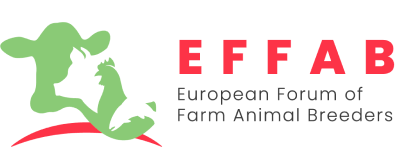Black Soldier Flies Pave the Way in Insect Farming
29 June 2023

The insect farming sector, particularly the Black Soldier Fly (BSF) breeding sector, is on the brink of exponential growth due to rising demand. EFFAB members, like Beta Bugs Ltd and Fly Genetics, are driving this growth and championing a sustainable future by harnessing the potential of the Black Soldier Fly. In their latest publication, Beta Bugs Ltd's magazine "Beta Buzz" highlights the current state of the BSF sector and sheds light on its visionary aspects.
BSFs are pivotal in tackling environmental challenges by implementing circular business models and optimising resource utilisation. These flies possess the unique ability to consume organic waste, efficiently transforming it into valuable end-products. By utilising BSFs, the approach effectively addresses the global issue of food waste, a major contributor to greenhouse gas emissions. The practice of insect breeding, specifically using organic waste streams, aligns with the principles of a circular economy and promotes sustainable food production.
Insect breeding practices have diverse applications, including aquaculture, terrestrial protein production, pet food, human supplements, biopesticides, and pharmaceuticals. These sectors actively seek alternatives to unsustainable inputs, and the use of insects, particularly BSFs, offers an environmentally friendly solution. The high-demand end markets in these sectors present favourable economic opportunities for insect breeders who can deliver top-quality proteins.
As the insect farming sector evolves, upholding a code of good practices for European breeders becomes crucial. These guidelines ensure the welfare, health, and responsible management of animals throughout the breeding process. Transparency, animal well-being, and sustainable practices apply equally to insects in breeding operations. Adhering to these principles ensures the ethical and responsible development of the industry.
EFFAB (European Forum of Farm Animal Breeders) will soon launch the code of good practices, Code EFABAR, specifically for insect breeding by the end of the year. Adhering to this code ensures that insect farming remains responsible, transparent, and aligned with the principles of animal welfare and sustainable development. Learn more about Code EFABAR and explore the already available codes for Aquaculture, Pig, Poultry, and Ruminant on our website.
